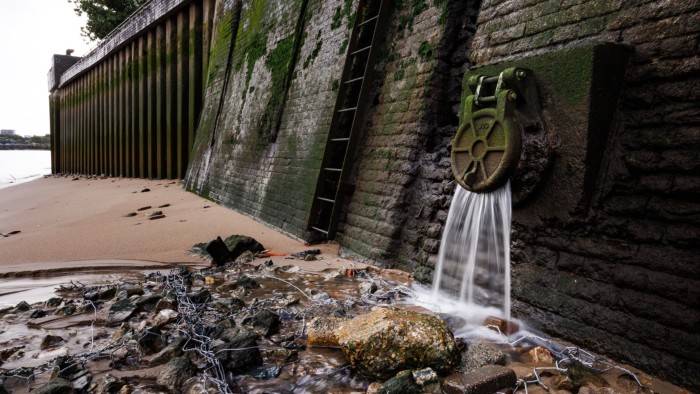Unlock the Editor’s Digest for free
Roula Khalaf, Editor of the FT, selects her favourite stories in this weekly newsletter.
England’s beleaguered water sector is pulling out all the stops to woo investors, guaranteeing revenues and capping risks.
The water regulator Ofwat wants to attract £50bn of investments for new infrastructure projects. Rather than getting utilities to take on more debt — and adding the cost directly to customers’ bills — such projects are being put out to separate tender. That means third parties would design, build, finance and potentially operate this new infrastructure, and the costs would be recovered through a surcharge on customer bills that is outside the normal price review process.
Luring new backers into the UK’s troubled water sector has some attractions. The balance sheets of existing providers have already been rinsed. English utilities are already loaded up with £74bn of borrowings after paying out £83bn in dividends over the last three decades.
While water bills have fallen in real terms since 2010, since privatisation they have risen far faster than overall inflation: 363 per cent according to a parliamentary debate. Meanwhile investment has only dribbled in; newcomers will be taking on projects that represent 36 years of catch-up digging reservoirs and other infrastructure.
Incoming investors will be pitched — in some cases literally — into muddied waters. There are multiple regulators, including Ofwat, the Drinking Water Inspectorate the Consumer Council for Water and the Environment Agency. Also in the mix: angry consumers, equally unhappy creditors and well-paid water bosses. A review due to be completed soon by Sir Jon Cunliffe, chair of the independent water commission, stands to redraw the landscape.
With the water sector in such poor shape, tendering out specific projects to newcomers may not sound like a bad idea. The cost of the projects will still need to be added to bills. But the regulator’s hope must be that, by having bidders compete, it can lower the cost to consumers.
The main problem is that this sort of structure fragments the system further. Operationally, hiving off the ownership of specific assets may not be ideal when managing an integrated water system.
What’s more, those who win the tender process, at least under one of the pathways envisaged, will not be directly licensed by the regulator. They will instead be indirectly overseen through their agreement with the local utility, which will still hold the licence. Investors can tap into the financial wizardry of lawyers and bankers to structure contracts. But that still looks like a recipe for disputes.
Not least, outsourcing such key responsibilities to unlicensed providers is hard to square with the essential nature of the services in question. Water still needs to come out of the taps. Any major mishaps, and it’s to government and regulators that the public will inevitably turn.




